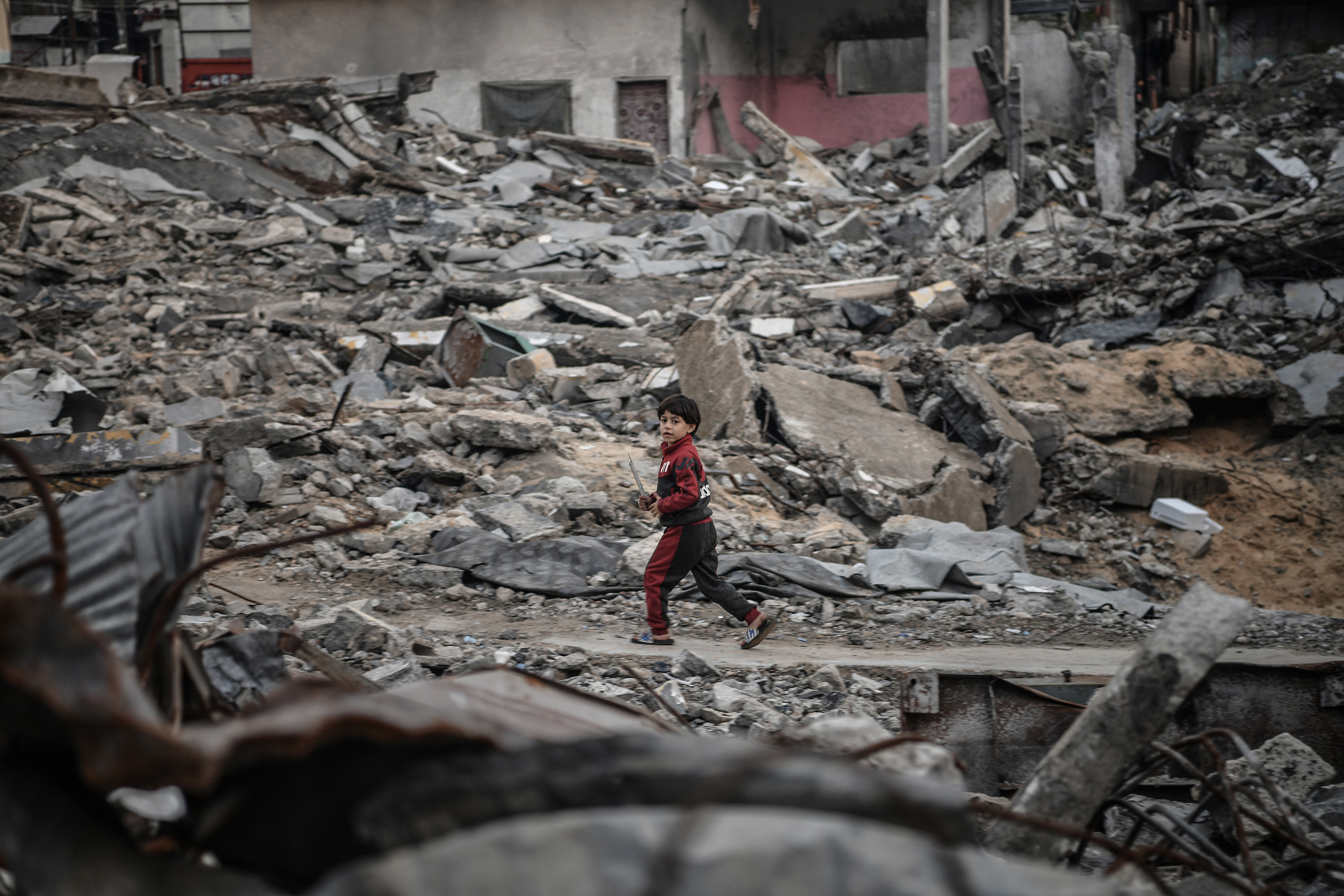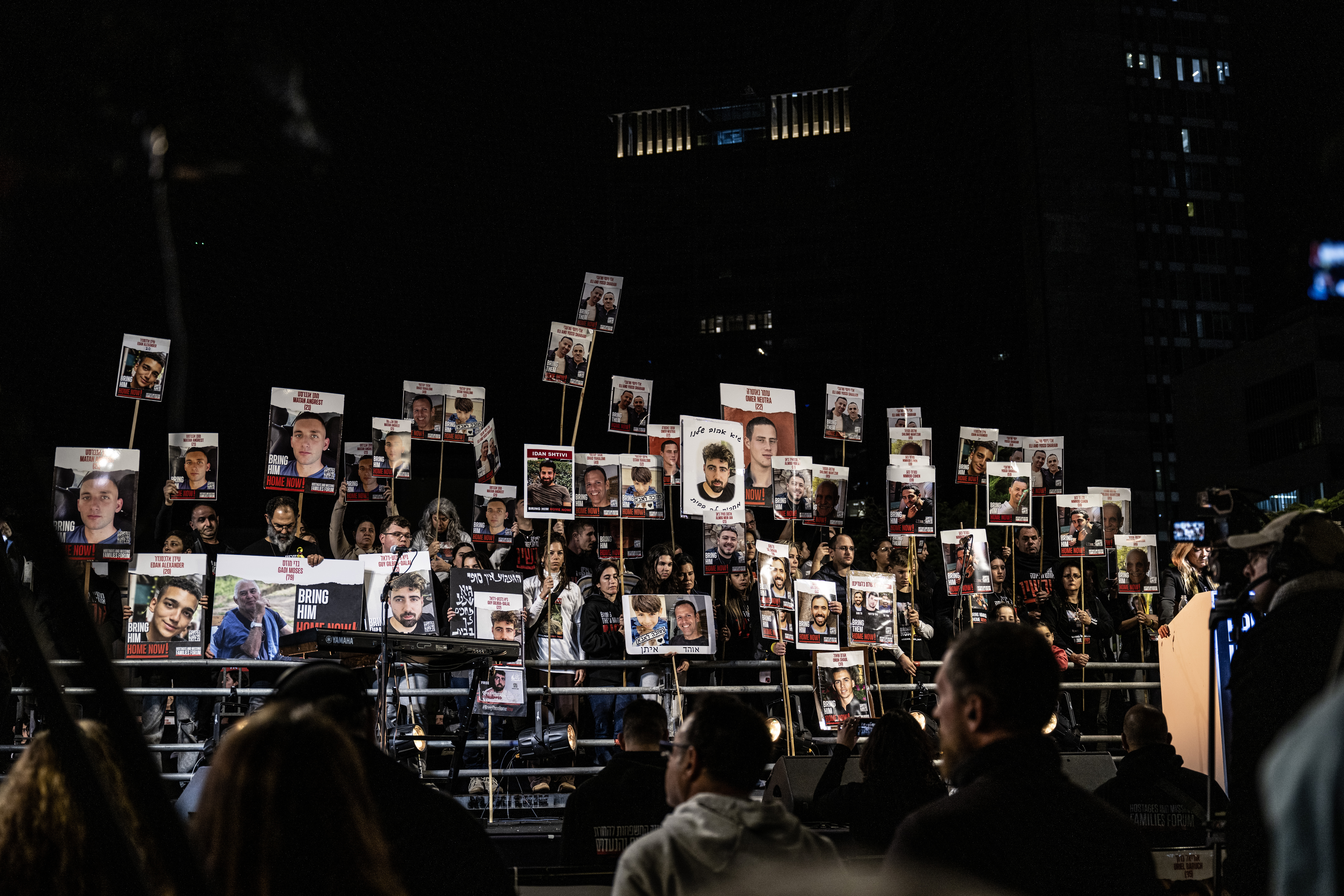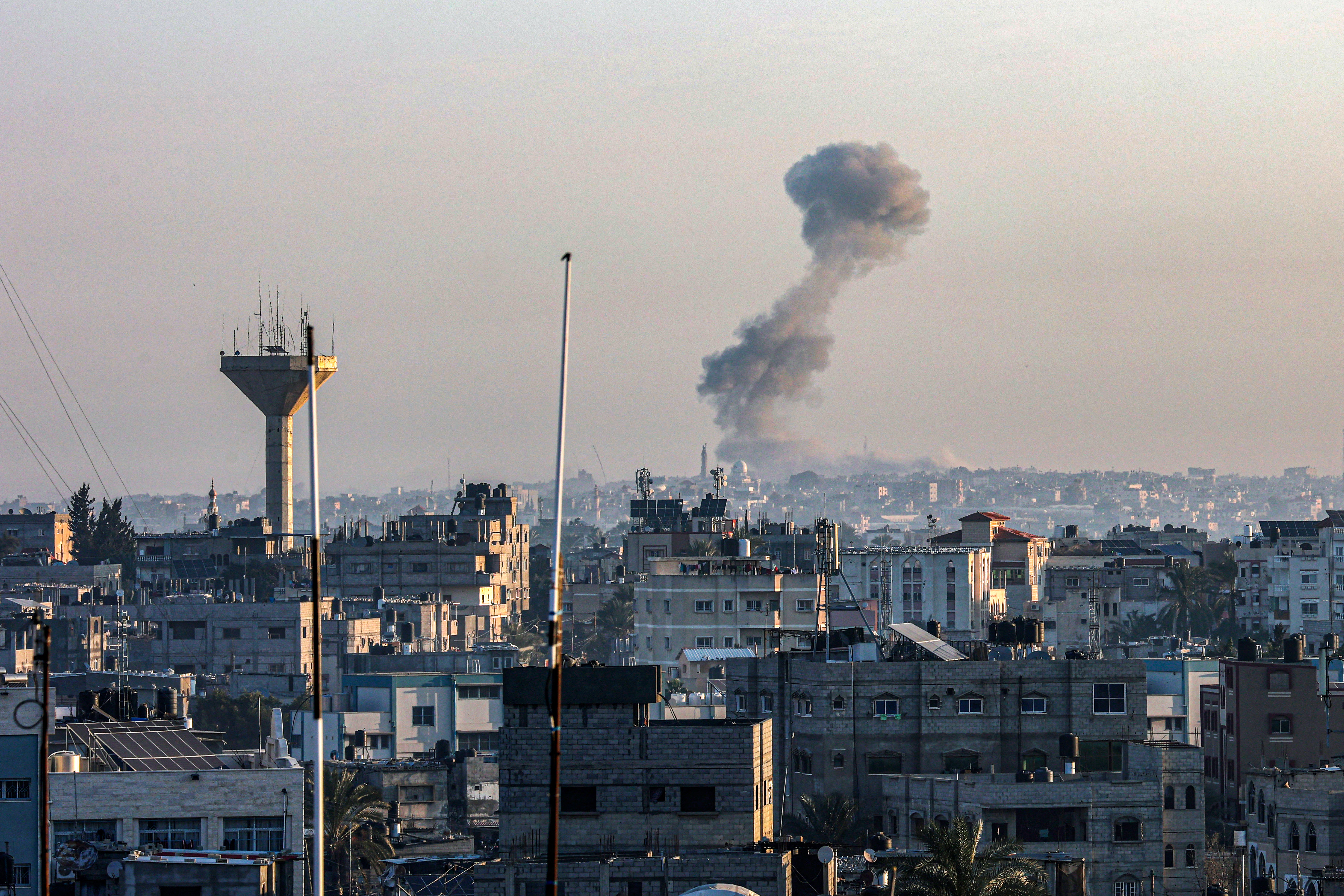Israeli forces are moving toward the largest hospital in Khan Younis, prompting patients and people taking shelter there to flee, according to international doctors working there and local journalists capturing events on camera.
Multiple videos show dozens of people carrying blankets, mattresses and other personal belongings leaving the Al Nasser Hospital compound in the southern Gaza Strip.
Women can be seen carrying children in their arms, while one man carries a boy on his shoulders. The sounds of bombardment and small arms fire can be heard in the background.
Several videos show nearly explosions from likely air strikes.
An American doctor, Thaer Ahmad, one of a team of US and British doctors from the medical humanitarian non-governmental organization MedGlobal working at the hospital, told CNN the Israeli military was getting closer.
"The hospital is shaking and there is panic," said Ahmad, an emergency medicine physician based in Chicago, in a voice note sent to CNN on which the sound of gunfire could be heard in the background.
"So many of the (internally displaced people) around the hospital have begun walking on foot away from the hospital," he added.
Earlier Tuesday, the Israeli military said Hamas had recently carried out a launch toward Israel from within the Al Nasser Hospital compound.
Israel has repeatedly accused Hamas of exploiting civilians as human shields by using hospitals and nearby areas as military sites.








